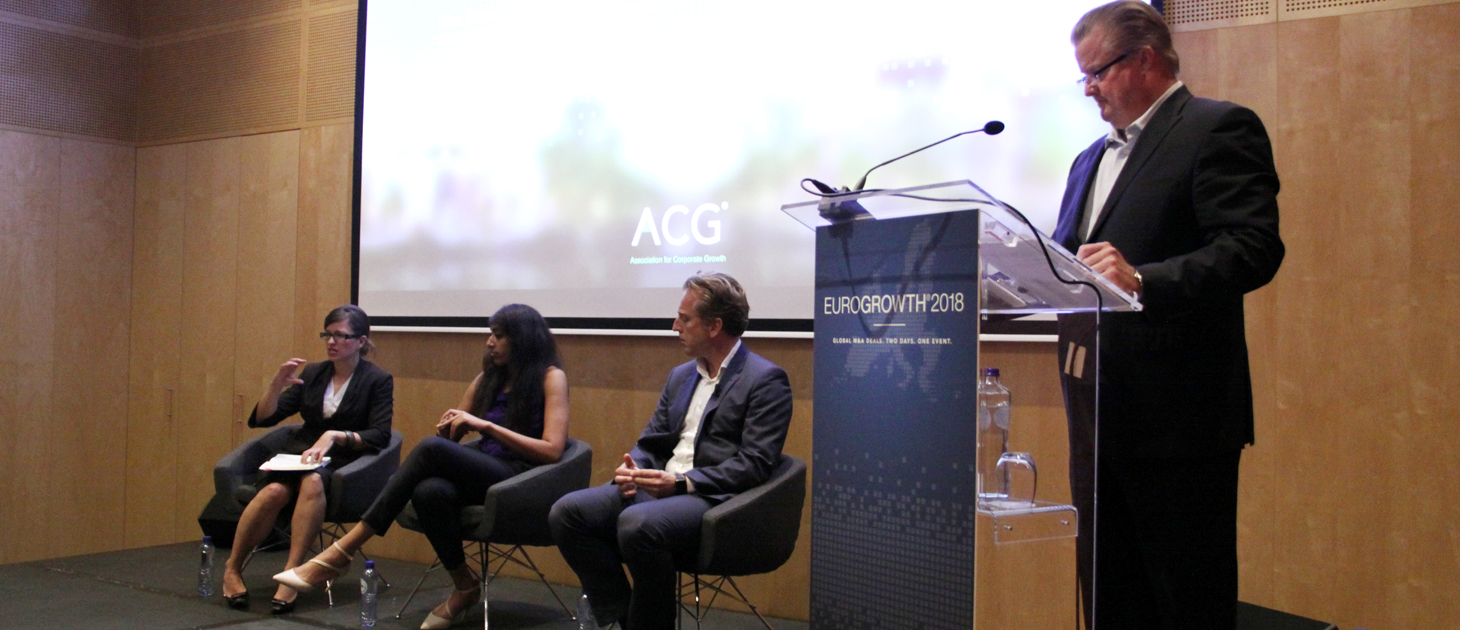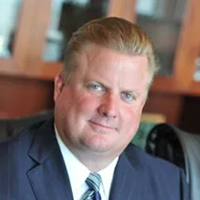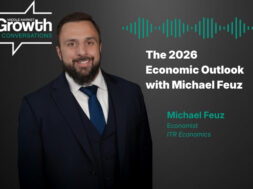EuroGrowth Spotlights Trends Shaping Global M&A
Moderators from ACG's EuroGrowth conference offer insight into blockchain, cross-border M&A and global leveraged finance.

ACG held its EuroGrowth conference in June in Amsterdam, where more than 200 deal-makers from across the globe came together to network and hear from expert speakers. The program included panel discussions that addressed the political and economic landscape shaping cross-border M&A, and the innovations that will impact global dealmaking. MMG asked the moderators of three of the panels for insight into what they discussed.
WM. BRAUN JONES III
Managing Director, Stonehaven Capital
Moderator, “The Exponential Rise and Impact of Blockchain & Tokenized Ecosystems”
What issues did your panel address?
The panelists broadly covered blockchain technology. They set the stage by defining blockchain technologies, cryptocurrencies, coins, tokens, etc. The discussion examined regulatory questions, such as how investors, intermediaries and issuers can navigate the ever-evolving regulatory environment and, from a global perspective, what the key jurisdictional differences are. From an investment standpoint, panelists weighed in on the issues and best opportunities for investors in blockchain.

What were the key takeaways?
Most initial coin offerings, known as ICOs, or token generation events, called TGEs, are focused on small, early-stage companies that, by their nature, are very risky investments. The United States and other developed countries are beginning to crack down on ICOs that may be in violation of securities laws. Blockchain investment opportunities for middle-market private equity firms are not as abundant. However, blockchain technology can be applied to many different industries, such as asset tracking, records management, data protection and privacy, product titling, authenticity verification and more. Prudent private equity investors should become familiar with potential blockchain use cases given they may be applied to some of their portfolio companies to enhance value.
Were there any comments from panelists that surprised you?
Some businesses involved with ICOs or TGEs are seeking jurisdictions with relaxed regulatory environments so that they may take advantage of some of the benefits of blockchain technology, such as easy and efficient secondary trading of private securities—a practice not permissible under U.S. securities laws, for example. However, as some countries establish more constraining regulations, these businesses simply move to less restrictive jurisdictions.
Massive computing and electric power are required to mine cryptocurrencies successfully. To reduce costs, some entrepreneurs are partnering with manufacturing facilities that generate their own power for operations. These facilities often have excess power that they can provide to crypto miners for a successful and profitable partnership.
DOUGLAS A. TRAFELET
Managing Director, PitchBook Data Ltd.
Moderator, “Cross-Border M&A Update: Trends and Forecasts”
What issues did your panel address?
Among the topics discussed during our panel was the massive rise in M&A deal flow, both in terms of completed transactions and especially in deal value. From 2015–17, PitchBook tracked an average of 11,000 deals worth 1,395 billion euros. This represented an 11 percent increase in deals done and a notable 43 percent increase in deal value from the previous three years. Roughly 40 percent of deals were in the business-to-business sector, and 20 percent each in financial services and IT.

What were the key takeaways?
One of the broad topics we covered was the impact on M&A investing of political and legal changes. On the positive side, panelist Bruce Fenton of Pepper Hamilton noted that following the recent decision by a U.S. federal judge that will allow the AT&T and Time Warner merger to proceed, there should be some “trickle down” into the middle market of an increased number of vertical integrations.
Conversely, panelist Torben Luth of JZ International noted that the continued uncertainty around Brexit may weigh heavily on the United Kingdom and European markets, something PitchBook Data is also showing. Through five months of this year, completed deals and deal value in Europe is at a mere 65 percent of levels in 2017, according to PitchBook.
JEREMY HARRISON
Regional Group Head, SVP and Senior Business Development Officer, Business Capital, Bank of America Merrill Lynch
Moderator, “Global LevFin and the Middle Market”
What issues did your panel address?
Our panel examined the deals being done in the European middle market from the point of view of both buyers and sellers, including the financial structures being used for deals, their key features and alternatives.

We addressed some of the issues to consider when putting together a financing plan. The panelists talked about some of the challenges facing Europe and the global economy and shared their outlook for M&A activity over the next 12 months.
What were the key takeaways?
There is a lot of capital on the sidelines right now and there’s strong investor demand for buyout loans as private equity firms look to deploy over a trillion dollars in dry powder. At the same time, market risks may be rising. The panelists pointed to global protectionist actions and political volatility as among the broad global challenges that should be taken into account over the next one to two years when structuring deals. They also weighed in on Brexit and said that the United Kingdom’s departure from the European Union will impact due diligence, particularly as it relates to issues such as workers and employment, trade and intellectual property.
This story originally appeared in the September/October 2018 print edition of Middle Market Growth magazine. Read the full issue in the archive.
EuroGrowth 2019 will be held in London on June 11-12. Learn more at eurogrowth.org.


